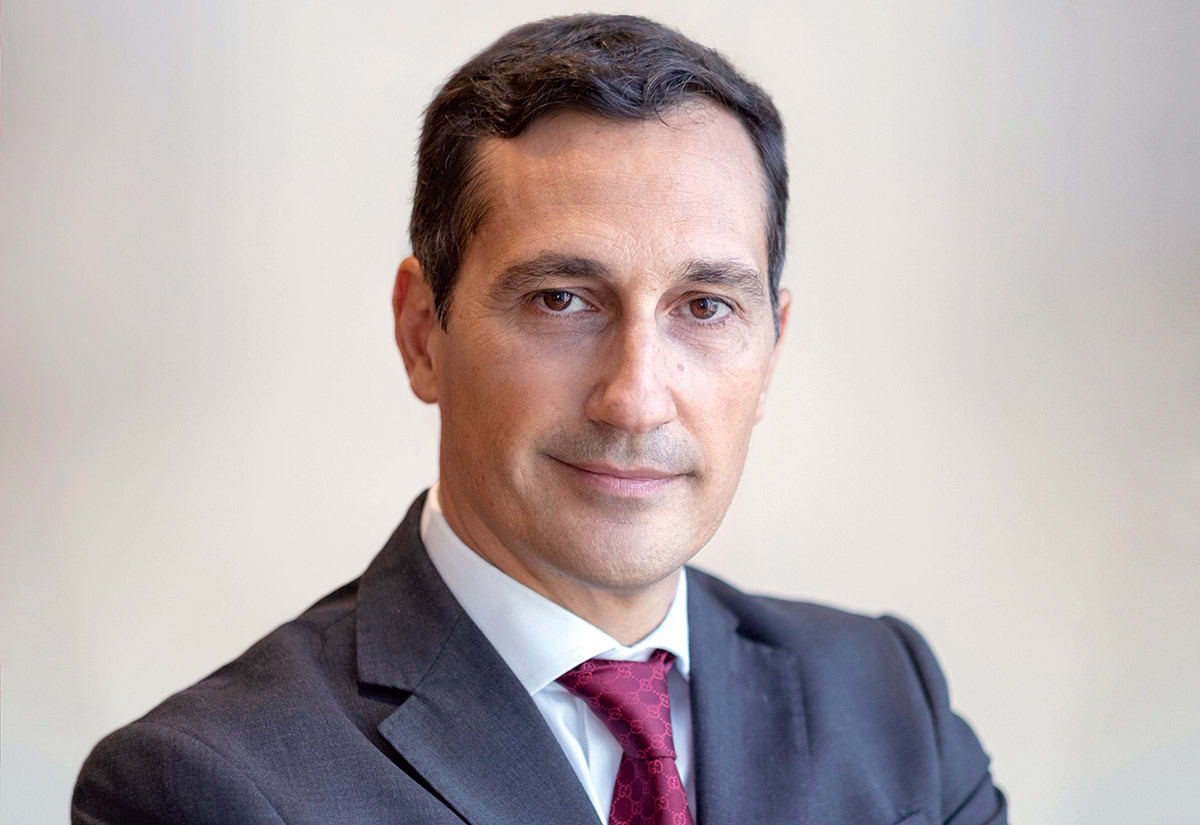CEPA Agreements Propel UAE’s Economic Growth
The UAE has seen an increase, in foreign direct investment (FDI) thanks to its Comprehensive Economic Partnership Agreements (CEPAs) with various global partners.
Massimo Falcioni, Chief Competitiveness Officer (CCO) at Abu Dhabi Investment Office (ADIO) highlighted the importance of these agreements during the AIM Congress at the Abu Dhabi National Exhibition Centre (ADNEC).
Falcioni compared CEPAs to “highways” that facilitate trade of goods and services between participating nations.

Broadening Market Access through CEPA
These CEPA initiatives serve as a gateway for businesses offering them market opportunities and streamlining trade processes by reducing barriers, simplifying customs procedures, and improving logistics.
Since their launch in 2021, the UAE has established CEPA partnerships with countries such, as India, Israel, Indonesia, Turkey, Cambodia, Georgia, Costa Rica, and Columbia. The agreements with the first five countries in this list are fully operational and negotiations with many other countries across the world are progressing.
Looking back on the dynamics of Foreign Direct Investment (FDI) the United Nations Council on Trade and Development’s (UNCTAD) World Investment Report 2023 highlighted that in 2022 FDI flowing into the UAE amounted to $22.737 billion showing a 10% increase and positioning the UAE as the highest recipient of FDI globally.
The UAE was ranked first in the West Asia region since it received 47.1% of the total FDI inflows to the region, amounting to $48.3bn. It was also ranked first in the MENA region as it accounted for 32.4% of the total FDI inflows to the region, amounting to $70.2bn.
Furthermore, Falcioni emphasized the location of the UAE as the intersection of three continents, Asia, Africa and Europe, with well-established aviation and port infrastructure.
They focus more on greenfield investments that drive growth by creating jobs and developing infrastructure. The ADIO provides incentives like land rates and assistance in accessing finance to support projects.

Apart from greenfield initiatives Falcioni also mentioned the growing significance of the UAE’s economy as a driver of growth. The Abu Dhabi Global Market (ADGM) serves as a center attracting fintech companies and offering platforms for financial access. The government is actively fostering an environment to innovation across sectors like e-commerce and e-sports with an interest in attracting foreign talent and investments.
The UAE is prioritising investments in Industry 4.0 and 5.0, focusing on automation, robotics, and enhanced productivity.
Working closely with Abu Dhabis Department of Economic Development the Ministry of Industry and Advanced Technology (MoIAT) is actively collaborating with businesses to facilitate this transition.
The ongoing transformation involves increasing automation and digitalization to enhance productivity and boost competitiveness. Together these initiatives are positioning the UAE as a hub, for investment as stated by Falcioni.
Chris Dixon, a partner who led the charge, says he has a ‘very long-term horizon’
Americans now think they need at least $1.25 million for retirement, a 20% increase from a year ago, according to a survey by Northwestern Mutual
Whether you call it charisma, charm or magnetism, some people seem like naturals. Good news: It can be learned.
Great leaders have it. Gen Z has a new word for it. Can the rest of us learn it?
Charisma—or rizz , as current teenage slang has anointed it—can feel like an ephemeral gift some are just born with. The chosen among us network and chitchat, exuding warmth as they effortlessly hold court. Then there’s everyone else, agonising over exclamation points in email drafts and internally replaying that joke they made in the meeting, wondering if it hit.
“Well, this is awkward,” Mike Rizzo, the head of a community for marketing operations professionals, says of rizz being crowned 2023 word of the year by the publisher of the Oxford English Dictionary. It’s so close to his last name, but so far from how he sees himself. He sometimes gets sweaty palms before hosting webinars.
Who could blame us for obsessing over charisma, or lack thereof? It can lubricate social interactions, win us friends, and score promotions . It’s also possible to cultivate, assures Charles Duhigg, the author of a book about people he dubs super communicators.
At its heart, charisma isn’t about some grand performance. It’s a state we elicit in other people, Duhigg says. It’s about fostering connection and making our conversation partners feel they’re the charming—or interesting or funny—ones.
The key is to ask deeper, though not prying, questions that invite meaningful and revealing responses, Duhigg says. And match the other person’s vibes. Maybe they want to talk about emotions, the joy they felt watching their kid graduate from high school last weekend. Or maybe they’re just after straight-up logistics and want you to quickly tell them exactly how the team is going to turn around that presentation by tomorrow.
You might be hired into a company for your skill set, Duhigg says, but your ability to communicate and earn people’s trust propels you up the ladder: “That is leadership.”
Approachable and relatable
In reporting this column, I was surprised to hear many executives and professionals I find breezily confident and pleasantly chatty confess it wasn’t something that came naturally. They had to work on it.
Dave MacLennan , who served as chief executive of agricultural giant Cargill for nearly a decade, started by leaning into a nickname: DMac, first bestowed upon him in a C-suite meeting where half the executives were named Dave.
He liked the informality of it. The further he ascended up the corporate hierarchy, the more he strove to be approachable and relatable.
Employees “need a reason to follow you,” he says. “One of the reasons they’re going to follow you is that they feel they know you.”
He makes a point to remember the details and dates of people’s lives, such as colleagues’ birthdays. After making his acquaintance, in a meeting years ago at The Wall Street Journal’s offices, I was shocked to receive an email from his address months later. Subject line: You , a heading so compelling I still recall it. He went on to say he remembered I was due with my first child any day now and just wanted to say good luck.
“So many people say, ‘Oh, I don’t have a good memory for that,’ ” he says. Prioritise remembering, making notes on your phone if you need, he says.
Now a board member and an executive coach, MacLennan sent hundreds of handwritten notes during his tenure. He’d reach out to midlevel managers who’d just gotten a promotion, or engineers who showed him around meat-processing plants. He’d pen words of thanks or congratulations. And he’d address the envelopes himself.
“Your handwriting is a very personal thing about you,” he says. “Think about it. Twenty seconds. It makes such an impact.”
Everyone’s important
Doling out your charm selectively will backfire, says Carla Harris , a Morgan Stanley executive. She chats up the woman cleaning the office, the receptionist at her doctor’s, the guy waiting alongside her for the elevator.
“Don’t be confused,” she tells young bankers. Executive assistants are often the most powerful people in the building, and you never know how someone can help—or hurt—you down the line.
Harris once spent a year mentoring a junior worker in another department, not expecting anything in return. One day, Harris randomly mentioned she faced an uphill battle in meeting with a new client. Oh!, the 24-year-old said. Turns out, the client was her friend. She made the call right there, setting up Harris for a work win.
In the office, stop staring at your phone, Harris advises, and notice the people around you. Ask for their names. Push yourself to start a conversation with three random people every day.
Charisma for introverts
You can’t will yourself to be a bubbly extrovert, but you can find your own brand of charisma, says Vanessa Van Edwards, a communications trainer and author of a book about charismatic communication.
For introverted clients, she recommends using nonverbal cues. A slow triple nod shows people you’re listening. Placing your hands in the steeple position, together and facing up, denotes that you’re calm and present.
Try coming up with one question you’re known for. Not a canned, hokey ice-breaker, but something casual and simple that reflects your actual interests. One of her clients, a bookish executive struggling with uncomfortable, halting starts to his meetings, began kicking things off by asking “Reading anything good?”
Embracing your stumbles
Charisma starts with confidence. It’s not that captivating people don’t occasionally mispronounce a word or spill their coffee, says Henna Pryor, who wrote a book about embracing awkwardness at work. They just have a faster comeback rate than the rest of us. They call out the stumble instead of trying to hide it, make a small joke, and move on.
Being perfectly polished all the time is not only exhausting, it’s impossible. We know this, which is why appearing flawless can come off as fake. We like people who seem human, Pryor says.
Our most admired colleagues are often the ones who are good at their jobs and can laugh at themselves too, who occasionally trip or flub just like us.
“It creates this little moment of warmth,” she says, “that we actually find almost like a relief.”
Chris Dixon, a partner who led the charge, says he has a ‘very long-term horizon’
Americans now think they need at least $1.25 million for retirement, a 20% increase from a year ago, according to a survey by Northwestern Mutual
















